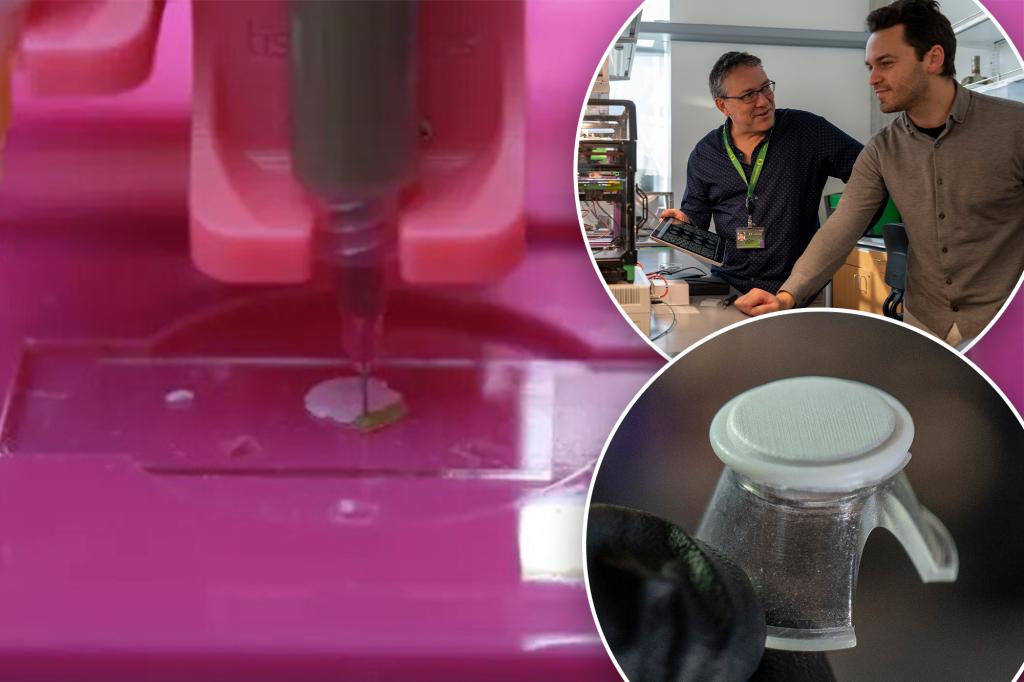L’Oreal has recently showcased a new development in the form of realistic artificial skin that can replicate common skin conditions and behaviors, such as eczema, acne, tanning, and wound healing. This bioprinted skin has the potential to revolutionize cosmetic testing by providing a platform for ethical testing of products without the use of animals. Guive Balooch, the head of the company’s tech incubator, believes that the ability to personalize the reconstructed skin through 3D printing with biology will be a game-changer. L’Oreal has partnered with the University of Oregon on this project and is working on manufacturing artificial skin that can also provide sensory feedback when testing cosmetics.
Since 1989, L’Oreal has not tested products on animals and has been using synthetic skin to test cosmetics. The company’s commitment to the ethical treatment of animals has driven them to develop innovative solutions for cosmetic testing. Barbara Lavernos, the deputy CEO overseeing Research, Innovation, and Technology at L’Oreal, emphasized the importance of technology in pushing the boundaries of beauty and improving the lives of people globally. The synthetic skin development aligns with the company’s vision of personalized and responsible beauty solutions.
The synthetic skin is created using a technique called melt electro writing (MEW), which involves constructing multiple layers of plastic scaffolds with cultured cells separated by a membrane. This results in a lifelike appearance that mimics human skin. The breakthrough model of synthetic skin grows in just 18 days, a significant improvement compared to previous models that took 21 to 35 days to create. Anne Colonna, the head of Advanced Research at L’Oreal, highlighted that the research has not only accelerated the process of skin reconstruction but has also opened avenues for future applications in skin tissue engineering.
The implications of L’Oreal’s artificial skin innovation extend beyond cosmetics and beauty products. The researchers believe that the synthetic skin could be utilized in studying wound healing, creating skin grafts for burn patients, treating diabetic foot ulcers, and addressing various other medical conditions. By providing an additional tool for tackling diseases and injuries, the artificial skin has the potential to make a significant impact in the healthcare industry. Paul Dalton, an associate professor at the University of Oregon, emphasized that the unique layering of their synthetic skin separates it from previous attempts and makes it more similar to real skin.
Moving forward, L’Oreal is focused on further advancements in the field of artificial skin and beauty technology. The company aims to incorporate advanced diagnostics, augmented beauty services, GenAI assistants, and breakthrough electronic devices to enhance the beauty industry and cater to the individual needs of consumers worldwide. Ultimately, L’Oreal’s commitment to innovation and responsibility in beauty technology reflects their dedication to improving lives and pushing the boundaries of what is achievable in the beauty industry.
Overall, L’Oreal’s development of synthetic skin represents a significant step forward in cosmetic testing, medical research, and skincare solutions. By combining 3D printing with biology, the company has created an innovative platform that can replicate various skin conditions and provide sensory feedback for product testing. This groundbreaking technology has the potential to revolutionize the beauty industry, improve medical treatments, and contribute to ethical practices in cosmetic testing. As L’Oreal continues to explore the applications of artificial skin, the possibilities for personalized, inclusive, and responsible beauty solutions are endless.


